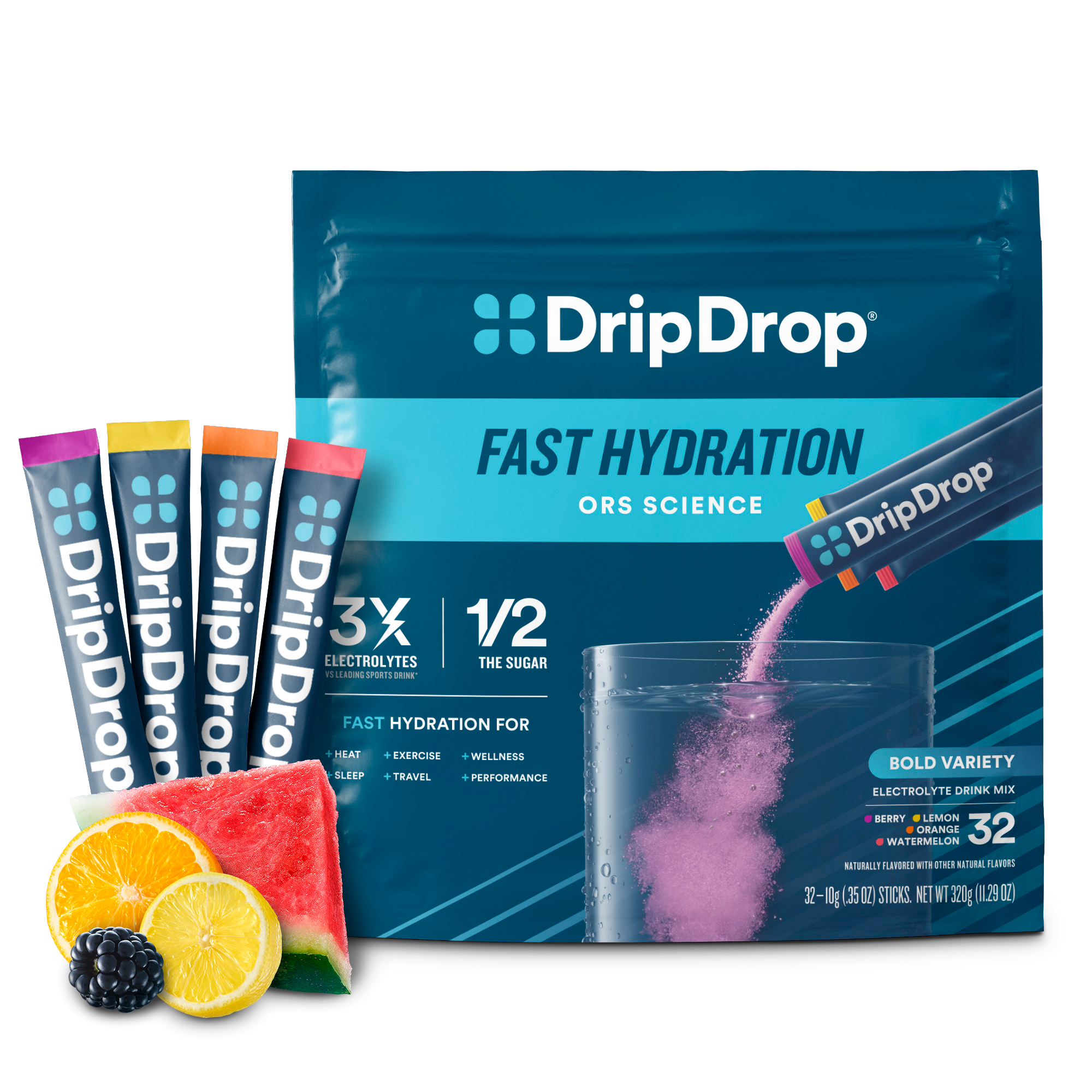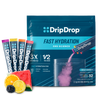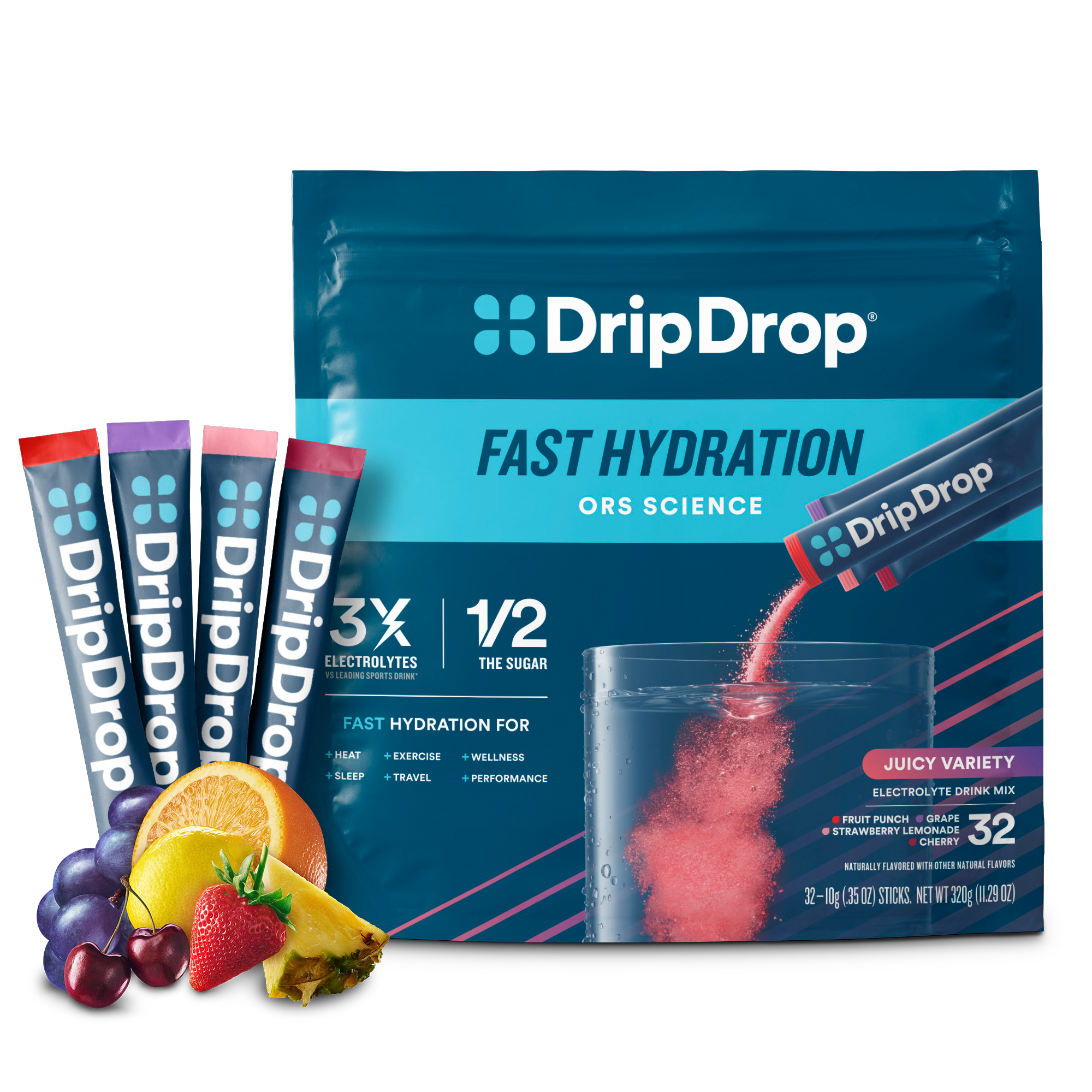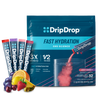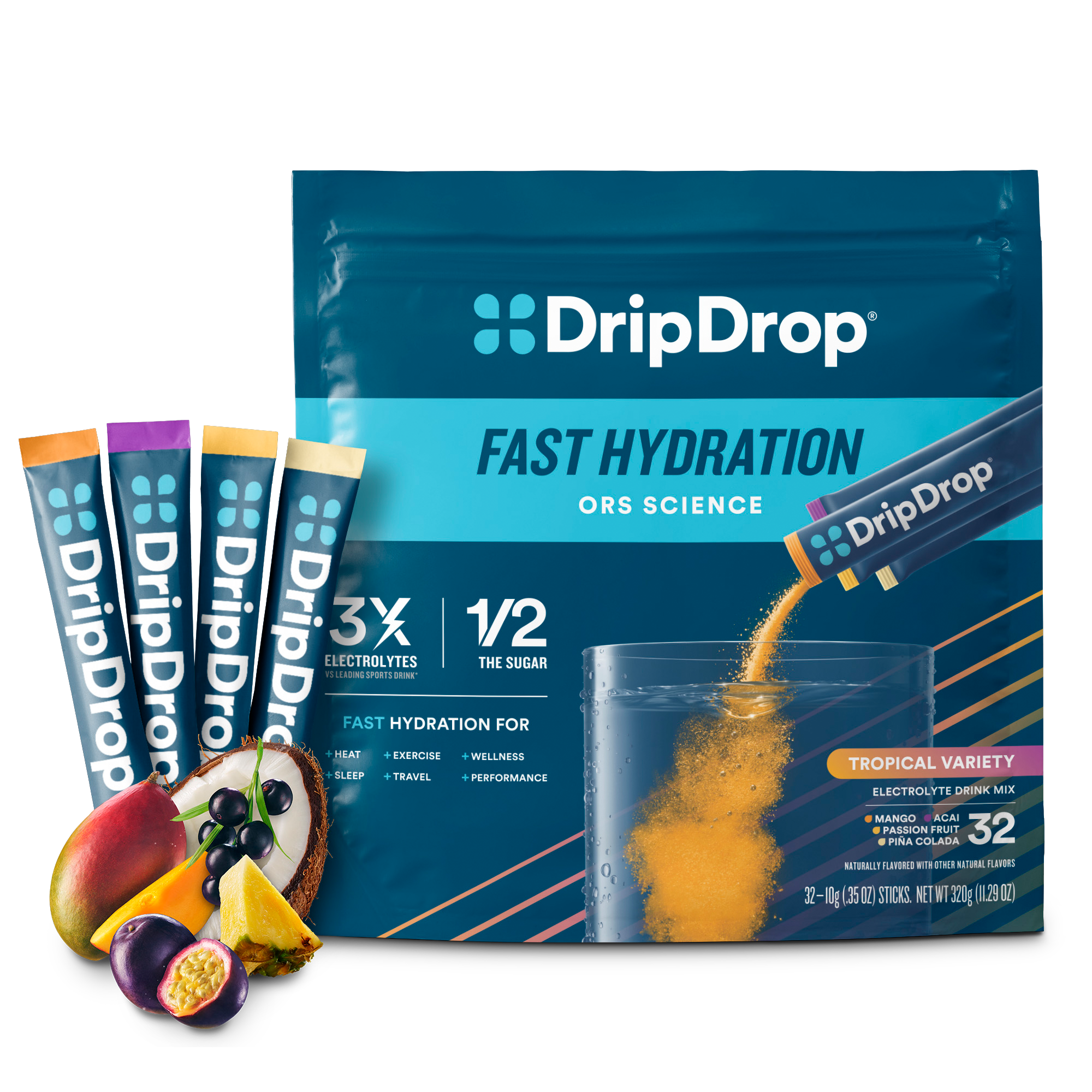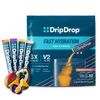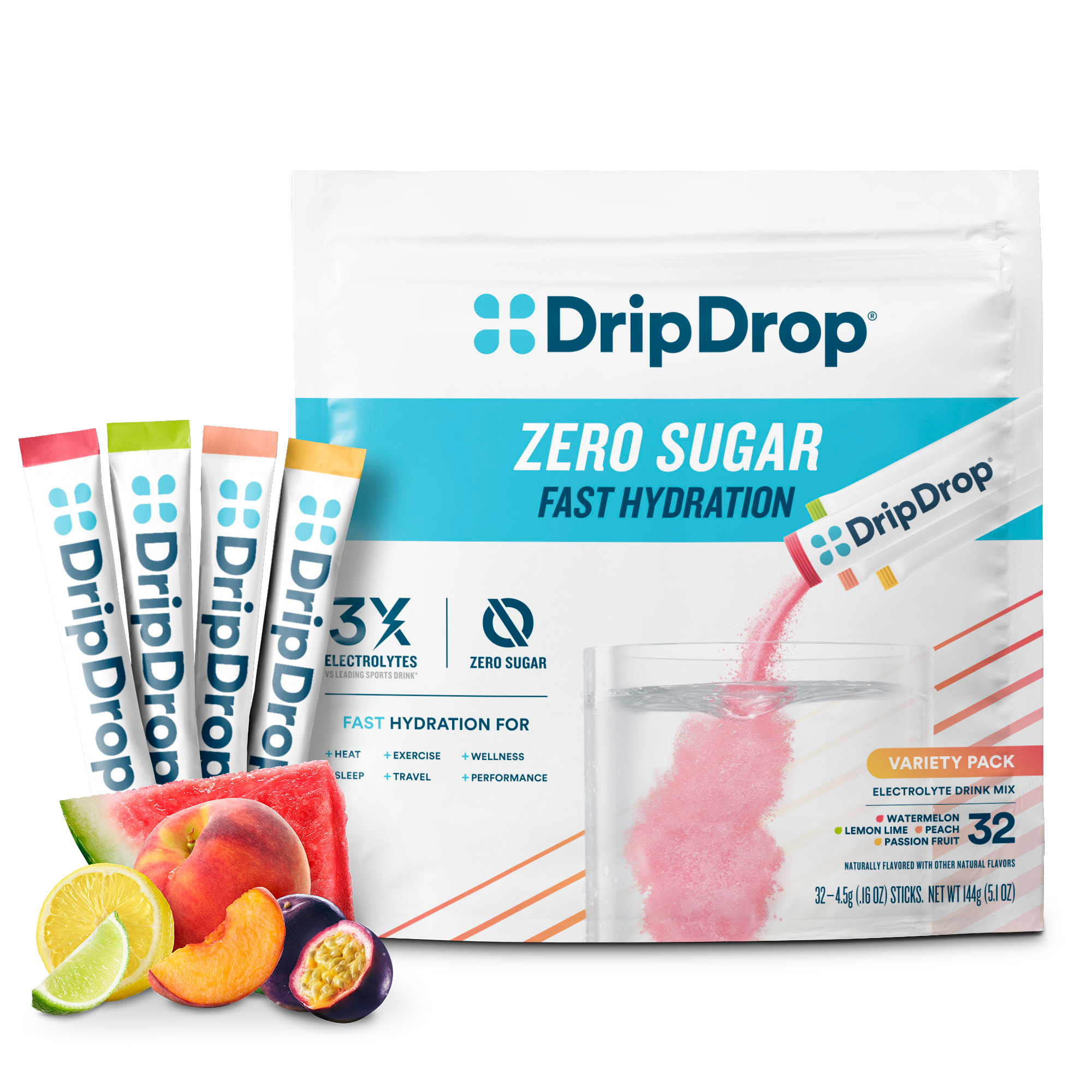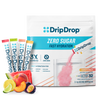Whether you often wake up dehydrated or find yourself parched in the middle of the night, waking up thirsty can be irritating. These feelings of excessive thirst are usually caused by dehydration and can also be a sign of an underlying medical condition.
Here, we’ll show you the main reasons why you may be waking up thirsty. Plus, you’ll discover why you can’t just drink plain water to solve the problem.
Why You’re Waking up Thirsty
There are several reasons you may be waking up thirsty, but almost all relate back to one culprit: dehydration. Here, we’ll show you how improper hydration from the day before, dehydration during sleep, and other factors can cause you to wake up feeling parched.
Dehydration
A lack of proper hydration from the day before is likely one of the main reasons you‘re waking up thirsty. In a proper state of hydration, your body has a precise amount of electrolytes and fluids to perform important functions. When you’re dehydrated, you either need more fluids or have an imbalance of electrolytes.
Dehydration is largely caused by sweating, having an illness that includes vomiting or diarrhea, and by medical conditions and medications – like antidepressants. That means every time you work on the job in the hot sun, train for a fitness event, or simply interact with people who may be sick, you’re at higher risk of developing dehydration. Even mild dehydration can cause signs of dehydration including headache, dry skin, extreme thirst, and low blood pressure.
During periods of dehydration, your body sends signals — usually by producing the antidiuretic hormone (ADH) vasopressin — to encourage you to rehydrate. ADH triggers your thirst mechanism and also signals your kidneys to store water rather than produce urine. This natural response often causes you to feel thirsty when you wake up.
Fluid and Electrolyte Loss During Sleep
When you sleep, your body naturally loses fluids and electrolytes in several ways. When you snore or breathe through your mouth at night, moisture in your nose and mouth gradually evaporates, causing mild dehydration that can result in waking up thirsty. This is particularly common for people with sleep disorders like obstructive sleep apnea, as treatments such as CPAP machines and medications can dry out mucous membranes and cause dehydration.
Sleeping disorders might relate to waking up thirsty in more ways, as there’s a connection between poor sleep and dehydration. A small study showed that poor sleep quality can inhibit the production of a hormone called vasopressin. This hormone plays a key role in water management and maintaining proper fluid levels throughout cells in your body. Without the proper amounts, your body may not be able to properly regulate fluid and electrolytes, leading to dehydration that can make you feel thirsty in the morning.
Your sleeping environment can also increase the likelihood of dehydration. If you sleep in a hot room — any temperature above 67 degrees Fahrenheit counts — you may experience night sweats and morning dehydration. That’s because your body produces sweat to cool itself off.
Your sweat consists of both fluid and electrolytes that are pushed to the skin’s surface. There, it’s absorbed into the air, causing a cooling effect. At the same time, you aren’t replacing this fluid and electrolytes since you’re sleeping, leading to dehydration that can cause you to wake up thirsty.
Dry or Humid Air
Sleeping in a room with dry air can also increase the likelihood of waking up thirsty. Dry air — which is common in mountain climates, deserts, and in the winter — can sap moisture from your nasal passages and mouth. It can also disrupt your sleep and decrease your performance the next day.
Air that’s too humid can also cause you to wake up thirsty. In high humidity, your sweat can’t evaporate as easily into the air because it’s already laden with moisture. Since your body is still producing sweat, you lose electrolytes and fluids that you need to stay hydrated. However, without the normal evaporation, you don’t get a cooling effect. This means you feel hot, sweaty, and parched due to dehydration and excessive sweating.
Medical Conditions
Some medical conditions such as diabetes mellitus and diabetes insipidus can cause feelings of excessive thirst. People with diabetes have trouble processing sugar properly. As a result, their kidneys work harder to restore natural blood sugar levels by increasing urination.
This urine loss is accompanied by feelings of extreme thirst, which are the result of imbalance vasopressin production. Other medical conditions that can increase the risk of dehydration and waking up thirsty include kidney disease, cancer, and urinary tract infections.
Alcohol Consumption
Alcohol is a diuretic — a substance that causes an increase in urination known as diuresis. That means your body loses fluids more rapidly than normal. If you aren’t hydrating with a proper blend of electrolytes and water while drinking, you may become dehydrated. Drinking too much alcohol can also lead to vomiting — another key contributor to dehydration.
Why You Can’t Just Drink Water for Hydration
When you wake up thirsty or with a dry mouth, you likely reach for a glass of water. But drinking water alone isn’t enough to help counteract the signs of dehydration. Your body also needs a precise ratio of electrolytes, including sodium, potassium, and magnesium. In fact, sodium plays a key role in hydration — if your normal sodium levels are out of balance, you can develop dehydration and conditions like hyponatremia that lead to waking up thirsty.
Here’s why: Electrolytes like sodium play an integral role in everything from muscle movement and sending neurotransmitter signals to maintaining proper hydration levels. Sodium is particularly vital when it comes to hydration. Sodium triggers your thirst mechanism when you’re dehydrated, encouraging you to increase your fluid intake. In addition, sodium regulates the balance of your body’s electrolytes, including zinc and magnesium.
Most importantly, sodium regulates blood fluid volume by triggering the production of hormones — including vasopressin — in your adrenal glands. It also works within the sodium-glucose cotransport system where glucose increases the absorption of sodium and sodium helps to maintain and quickly rebalance fluid levels.
All of this highlights why you can’t just drink water to address dehydration. You need an exact ratio of electrolytes like those in DripDrop to address fluid loss and wake up hydrated.
Tips for Staying Hydrated
Proper hydration levels vary from person to person. While most experts recommend drinking eight 8-ounce glasses of water a day, this advice doesn’t take into account electrolytes that are essential to hydration. The best way to avoid waking up thirsty due to dehydration is to drink an oral rehydration solution like DripDrop.
Oral rehydration solutions are recommended by the World Health Organization (WHO) and UNICEF to relieve dehydration. DripDrop contains a precise ratio of electrolytes, including sodium and magnesium, that your body needs to stay properly hydrated.
The precise formula provides medically relevant electrolyte levels, improving on the World Health Organization’s Oral Rehydration Solution (ORS) standards because of its delicious taste. The result is a medically viable ORS that also tastes great. From watermelon to berry, and more, you’re sure to find a flavor you love that will help you hydrate and avoid waking up thirsty.
Make sure to drink fluids throughout the day, not just when you feel the effects of dehydration. You can pack DripDrop in your work bag or add it to a water bottle to stay hydrated throughout the day.
Stop Waking up Thirsty With DripDrop
DripDrop is a proven alternative for treating mild to moderate dehydration that can cause you to wake up feeling thirsty. It's powerful enough to use in extreme circumstances but safe enough for everyday use.
When you're in a state of dehydration, drinking enough water is only part of the equation. Your body also needs to replenish vital electrolytes and fluids to relieve dehydration quickly. DripDrop supplies vitamins like zinc, potassium, and magnesium which are essential to support your overall health.
For cases of mild to moderate dehydration, DripDrop is a fast, effective, and great tasting remedy. Its convenient packaging allows you to have DripDrop when you need it, where you need it. Get started with our most popular multi-flavor pouch to hydrate fast. Or, learn more about how you can save up to 25% on every purchase when you subscribe.



